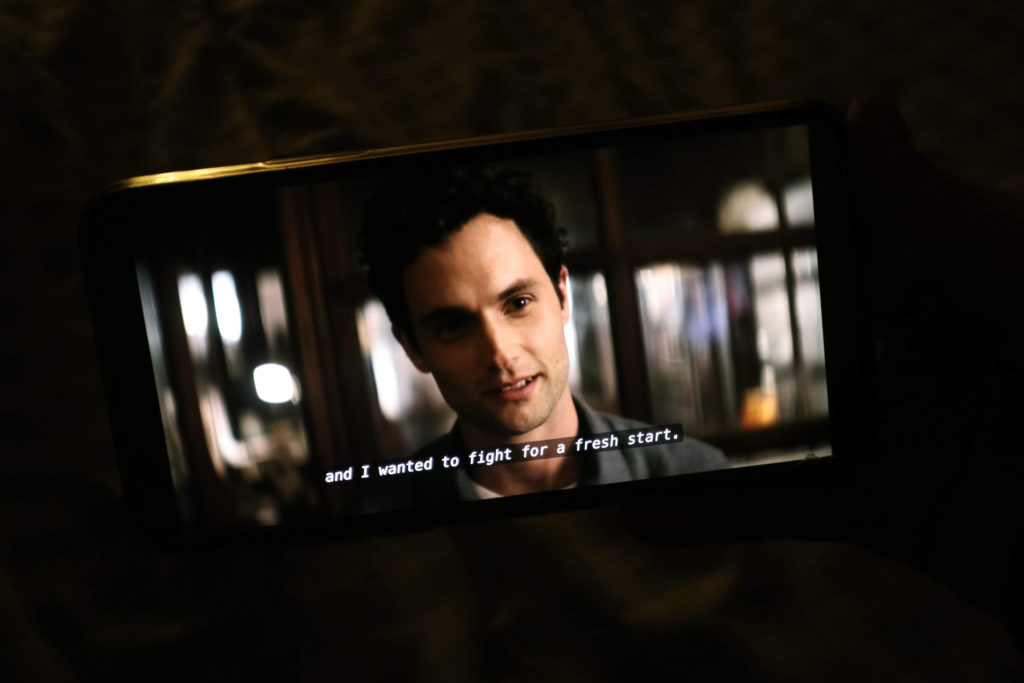
By Nameera Khan and Jessica Sandoval, Staff Writers
Murder and love often appear together on television. In the popular Netflix original show, YOU, we see Joe Goldberg, a sociopathic stalker, manipulate and murder for the girl he loves. Willing to do anything to be with Guinevere Beck and later Love Quinn, he kills several people he deems as “obstacles.” He calls it fate, but this behavior actually romanticizes murder and causes audiences to sympathize with these actions.
After season 2 was released in late December, fans took to social media to jokingly display their love for Joe. Twitter users expressed that the idea of someone loving you so much that they stalk you creates sympathy for violence and abuse within relationships, especially because Joe, as we are told throughout the show, had a rough childhood. He repeatedly says that love will help him become a better person.
Freshman Kate Esteveez agreed that Joe’s intentions are portrayed as acceptable given his circumstances in the show and said that in the second season, viewers “…see the other side of him [and]… his backstory. I rationalized what he does because of his abusive past. [The audience can see that] he kills for the better interest of people.”
The cultural phenomenon surrounding YOU creates a deeper understanding of what audiences think of murders portrayed in media.“I feel like the purpose of the show is to highlight how dangerous the tropes [that] we all sort of grew up [on] in romcoms are…. By portraying Joe… as deranged… the show displays how dangerous the archetypes are,” said sophomore Hanna Kurdziel.
Sophomore Grace Ibaj added, “Another thing is [that] you will believe what you’re told… [The audience is] seeing it from Joe’s perspective, [and it’s] the same thing [when]… you’re watching the news. If you watch CNN or Fox News [you will]… believe their side and what they are supporting.”
Many also believed that viewers sympathize with murders more based on the character’s skin color and appearance. “I definitely think [society]… is going to sympathize with [good-looking characters]… more especially considering how many of my friends say Joe is so cute and that he is only doing it to protect [his lover],” said Hanna. “People will believe what they are told from the nice white man’s perspective.” Sophomore Alyssa Figueroa commented that his character gains sympathy “because he’s a conventionally attractive white man… you are conveniently told [by society] to trust people like that.”
After season 2 of YOU, its audience started to change their perspective on murder and love. Sophomore Grace Ibaj said that the show’s focus changes the audience’s perception of the events. “I think when you watch the show you [can] enjoy it but if it actually happened in the real world, you would take a step back and realized it’s messed up,” she said. “The show doesn’t emphasize how bad the murders were, [but] it showed how much he loved his lovers more.”
Photo by Nikki Ng, managing editor.



























